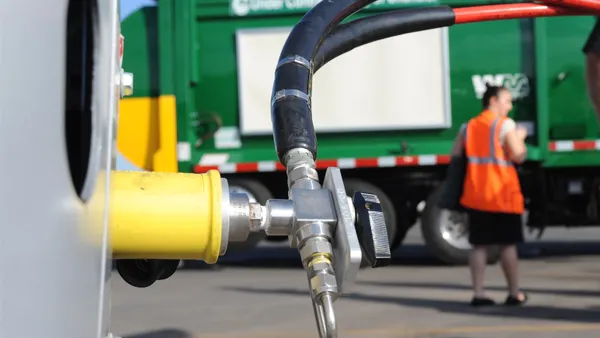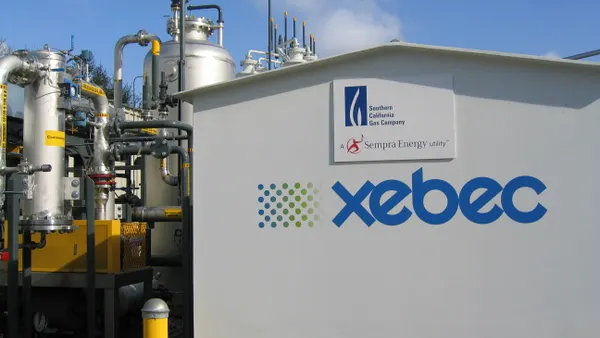CLARIFICATION: An earlier version of this story referenced the Frey Farm Landfill, which is not considering gasification.
Each year, Americans produce 250 million tons of municipal solid waste — which is a concerning number that will inevitably increase as the population of the country grows.
To keep up with the amount of trash, hundreds of municipalities request permits to expand their landfill capacities. Geologist Walter Leise recently described expansion initiatives as building a mountain of trash on top of another mountain of trash, offering a vivid description of the concept.
As landfills get bigger and expansions become more controversial, do officials have a better option for the disposal of municipal solid waste?
The Plant City, FL-based waste management company focuses on two objectives: the need for environmentally safe and economically sound management of municipal solid waste, and the quest for clean, renewable energy.
WSI Management's Vice President Matt Linda explained to Waste Dive that the company does not look to dispose of solid waste through plasma technology, or anaerobic digestion, or incineration. Instead, the company has mapped an "intellectual blueprint" to turn MSW into fuel cubes and bioplanks through gasification.
According to a report published by the Gasification Technologies Council (GTC), gasification combines carbon-based materials in MSW (known as feedstocks) with oxygen to break them down into a mixture of carbon monoxide and hydrogen, while removing pollutants. This process leaves clean, "synthesis gas" that can be converted into usable energy or products.
Despite common belief, the process of gasification is not the same as incineration. GTC defines incineration as using MSW as a fuel, "burning it with high volumes of air to form carbon dioxide and heat." Gasification uses the MSW as a feedstock to create syngas, which is then turned into "higher valuable commercial products" instead of just heat and electricity.
"Instead of paying to dispose of and manage waste for years in a landfill, using it as a feedstock for gasification reduces disposal costs and landfill space, and converts those wastes to electricity and fuels," the report states.
WSI's technology collects municipal solid waste, removes heavy metals, and pushes the rest through an elutriator. The patented elutriator removes liners from diapers and paper labels from bottles, and shreds these materials, plus any organic waste, before sterilizing them and breaking them down into a cellulose-based material. The cellulose-based material is then converted into raw biofuel feedstock, or renewable fuel cubes, which are fed into a gasifier to produce steam and electricity. The cubes have a higher BTU rating per pound than steam coal, according to Linda.
Linda notes that the use of such systems — like WSI's patented Waste Elutriation Technology (WET) — can solve disputes over landfill expansions and how to properly dispose of waste.
"Keystone Landfill in Pennsylvania is permitted for 7,200 tons [of MSW] a day. 7,200 tons a day that's going into Mother Earth," Linda says. "And now because of the expansion permits, the residents don’t want the permit and they're up in arms. There's another landfill expansion in Ontario, NY. You've got Saugus, MA; Suacon Township in PA ... Prehistoric landfills don't exist anymore and incineration just spews material into the atmosphere, which is not good for anyone. There are technologies out there that could fix all of these boo-boos, and WSI [technology] just happens to be one of many."
Other companies have developed similar gasification processes and facilities across the globe. These companies include PHG Energy of Nashville, and Air Products, an Allentown, PA-based gas processing technology developer that built two gasification plants in the UK.
"The Air Products project provides a solution to the UK’s waste management challenge whilst strengthening the country’s energy security," said Minister for the Cabinet Office Francis Maude.
While WSI does not yet have a gasification facility open, it hopes to soon earn a research, development, and demonstration (RD&D) permit from the NJ DEP in order to build a demonstration facility. Linda is confident that the permit will soon be obtained due to WSI's unique elutriator technology and its ability to process 6,000 tons of MSW a day, which far surpasses the capabilities of many competitors.
"Ours is a patented technology, it's one of a kind. The patent is 20 years old. As time went on we refined it, we tweaked it, and now we made it into an absolute perfect machine to process municipal solid waste into some sort of energy."
In the interim, gasification will continue to be a growing source of responsible waste disposal for both waste management companies and municipalities to consider.
"It's good for the industry, good for taxpayers, and supports this Government's long-term plan for a stronger economy," said Maude.











